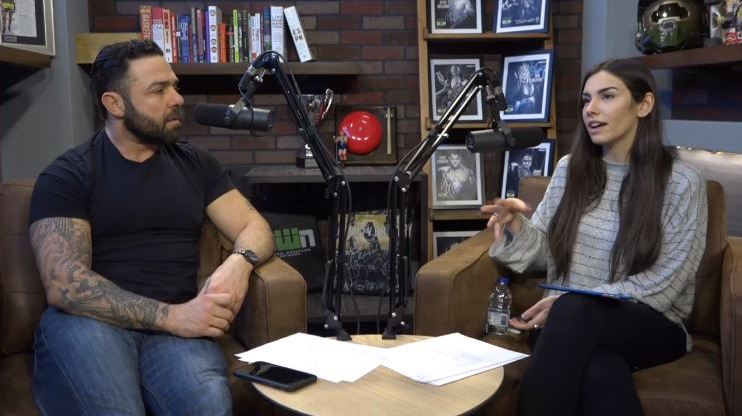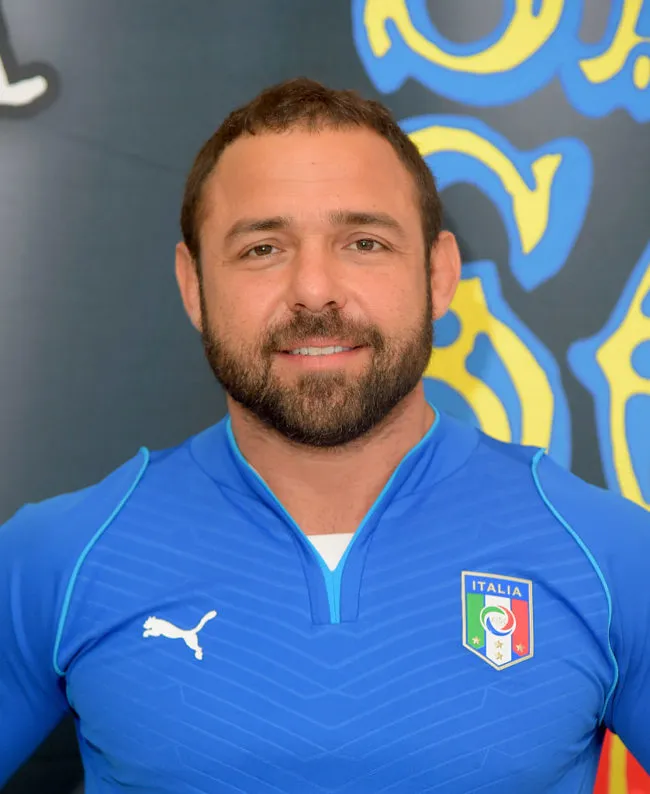Wrestler Santino Marella says transgender women competing is ‘not fair’

Santino Marella
Ex-WWE wrestler Santino Marella has said that transgender woman should not be allowed to compete against cisgender women in sport, saying that it is “not fair.”
Speaking on Behind the Lights with Alicia Atout on Impact Wrestling’s Twitch stream, Marella – whose real name is Anthony Carelli – was asked about intergender matches in professional wrestling.
He then started speaking about transgender women in sport, and said: “There are cases now in MMA and wrestling where there’s trans girls that were born boys that are beating the s**t out of females, and that’s wrong.”
Marella continued: “In every other aspect in life, if you’re born a guy and you become a woman, you’re accepted everywhere. But in the field of actual competitive sport, there has to be a barrier. And the barrier is based on, ‘So you were born a goddamn man.’
“You’re accepted as a human being and as a person, and you are loved in every single way. Except it’s not fair that you compete against women in sports because you were born with different physical biological attributes.
“There cases now in MMA and wrestling where there’s trans girls that were born boys that are beating the shit out of females, and that’s wrong.”
– Santino Marella
“We have to be realistic about it. And we have to also not be so sensitive.”
Santino Marella: ‘I don’t know what they call them’
Directly afterwards, Marella had to ask the host what he should call transgender women, saying: “I don’t know what they call them, if the end result is female, that’s a trans woman – they’re born a man but now they’re a woman. You call it a woman, right?”
When the host confirmed that trans women should be referred to as trans women, he said: “So this trans woman is beating the s**t out of other women – as a white – as a straight man, I’m just going to sit back and let these two groups scrap it out over here, because I want nothing to do with that scrap.”
Marella’s anti-trans rant comes as the debate around transgender athletes continues to gain momentum.
“In every other aspect in life, if you’re born a guy and you become a woman, you’re accepted everywhere. But in the field of actual competitive sport, there has to be a barrier.”
– Santino Marella
Last month, Athlete Ally, an LGBT+ group, cut ties with tennis legend and lesbian icon Martina Navratilova after she wrote a column for The Sunday Times in which she objected to transgender athletes in sport.
Responding to the article, Athlete Ally said her comments were “transphobic” and based on “a false understanding of science and data” that promotes “hateful stereotypes.”

Former WWE wrestler Santino Marella. (Michael Loccisano/Getty)
They also pointed out that there is “no evidence at all that the average trans woman is any bigger, stronger, or faster than the average cisgender woman, but there is evidence that often when athletes lower testosterone through hormone replacement therapy, performance goes down.”
LGBT+ sport organisations release pro-trans athlete statement
Meanwhile, UK Olympic swimmer Sharron Davies also caused controversy earlier this month when she hit out at transgender athletes online.
In her tweet, she said there is “a fundamental difference between the binary sex you are born with & the gender u may identify as.”
She also said that – in order to protect women’s sport – that those with a “male sex advantage should not be able to compete.”
Three national LGBT+ organisations came together to release a statement in response to Sharron Davies’ claims.
There is “no evidence at all that the average trans woman is any bigger, stronger, or faster than the average cisgender woman.”
– Athlete Ally
The statement – which was released by Pride Sports, LEAP Sports Scotland and LGBT Sport Cymru – said that those who try to examine transgender athletes’ access to sport without examining wider issues they face are guilty of “deeply irresponsible transphobia.”
The statement also pointed out that transgender athletes have been competing at the highest levels of sport for 15 years. This was as a result of the International Olympics Committee (IOC) agreeing to the Stockholm Consensus, which allowed trans athletes to compete for the first time.
That policy was updated in 2015 to further improve access for trans athletes. Despite this, not a single transgender athlete has medalled at the Olympics in that time.

